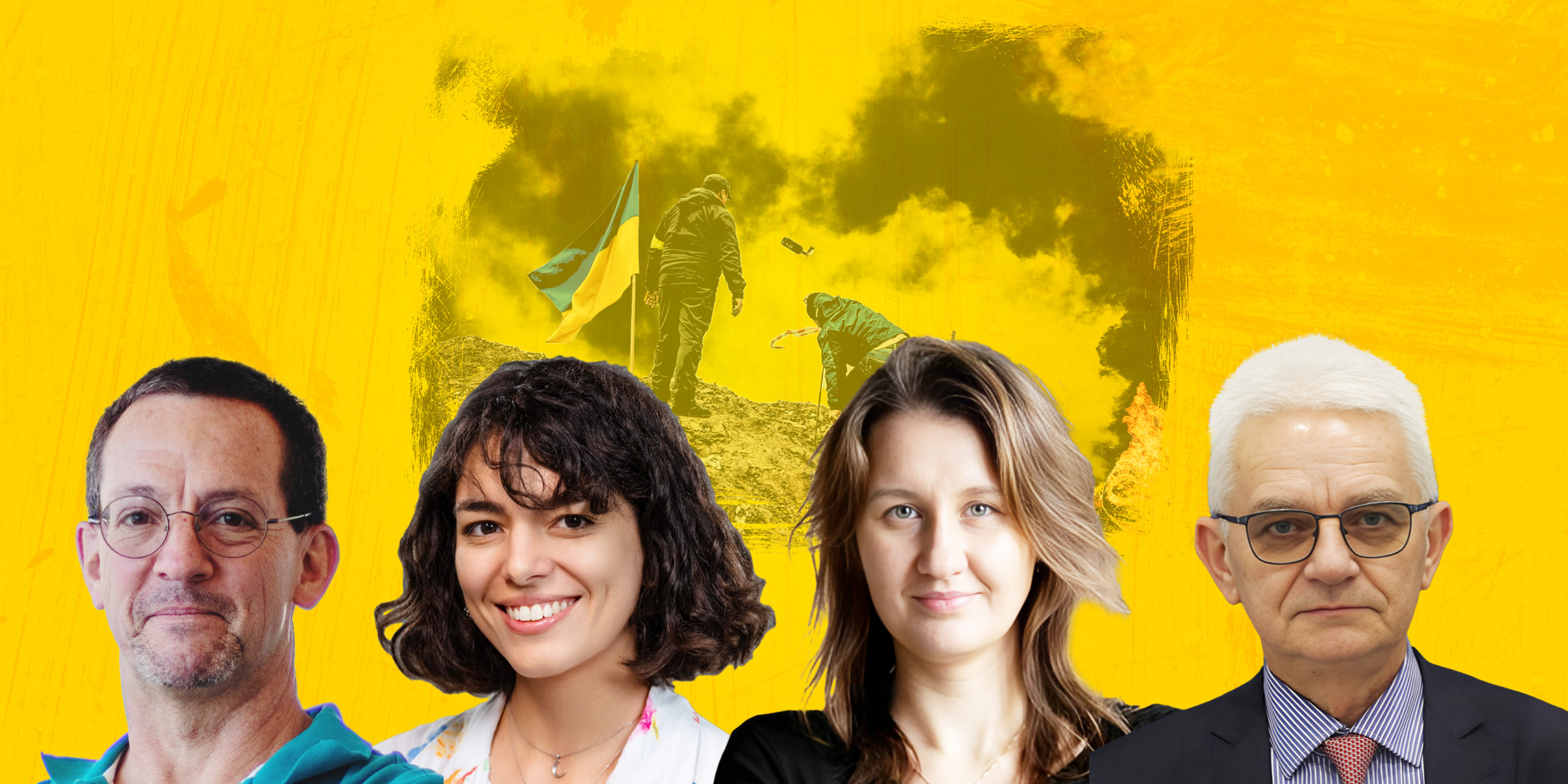“Ukraine is not ready to surrender ... Ukrainians are eager to see peace. We are really tired, exhausted, and we want peace. But not peace at any price.”
These were the words of Oleksiy Melnyk, co-director of foreign relations and security programmes at the Razumkov Center (Ukrainian Center for Economic and Political Studies). He was speaking at a Daily Maverick webinar, “On the Frontlines of Freedom: Ukraine's Fight for Just Peace”, on Tuesday, 25 February.
The webinar, which coincided with the three-year mark of Russia’s invasion in Ukraine, was chaired by South African health and human rights activist Mark Heywood. Also in attendance were Anabel Ramires, leader of cultural diplomacy at the Ukrainian Institute for Asia, Africa and Latin America; and Iryna Drobovych, civil society leader and co-founder of The Day After Foundation in Ukraine.
https://www.youtube.com/watch?v=qcnjDoqWwzw
“There is a growing demand for peace negotiations, but … there is some general consensus in Ukrainian society that … Ukrainian territory or Ukrainian future security benefits cannot be compromised,” said Melnyk.
“This is really a critical moment and there is much more at stake – not just Ukrainian territories and Nato [North Atlantic Treaty Organization] membership – because now we are approaching the moment when Europe in general and the rest of the world has a very hard choice either to let the Russian aggressor escape unpunished or to achieve what we call just and long-lasting peace by making an aggressor see that this is not something that could be acceptable in the current war.”
Trump disinformation
Melnyk’s comments come at a time when US President Donald Trump appears to be reversing the country’s foreign policy on Ukraine, questioning the legitimacy of President Volodmyr Zelensky’s government and entering into direct talks with Moscow. Trump has also falsely claimed that Ukraine “should never have started the war”, according to an AP News report.
“Right now ... I think that the war enters a very critical moment ... because of the different role being claimed by one of Ukraine's key partners, where we now have some doubts [as to] whether it's a Ukrainian partner or becoming ... a Russian partner. I mean, [with] the new American administration, Ukraine now finds itself under double pressure from Moscow and from Washington,” said Melnyk.
Drobovych referenced a recent claim by Trump that Zelensky had an only 4% approval rating among Ukrainians. She noted that the approval rating for the Ukrainian president actually stood at over 50%.
“It's also important to invite Ukrainians to any platforms internationally, so we are telling you our stories … In times when the world has fallen apart, only those facts and people who live through those moments to confirm these facts make the difference,” said Drobovych.
Suffering in occupied territory
The war has seen numerous human rights violations take place in Ukraine, according to Drobovych. More than 150,000 Ukrainian children have been illegally deported to Russia, while another 1.5 million children still live in occupied territory.
“We can't forget that over 18% of Ukrainian territory is still under occupation,” said Drobovych. “Occupation is not peace. The human rights violations that are going on in the occupied territories are enormously hard.
“As a women's rights activist, I'm working with the women's rights organisations who are working with victims of the war crimes. We have numerous sexual crimes that are connected with the war and those victims … remain unseen, since this trauma is very, very hard, and to overcome these challenges takes a lot of strength.”
Drobovych emphasised that women had also played a key role in combating the invasion, with 65,000 Ukrainian women on the front lines, 5,000 of whom were taking part in combat-related tasks on the battlefield.
“We have women leading in providing humanitarian support … We have women who support those victims of the war crimes that have been conducted by Russians during this large-scale war. Many, many examples of the leadership makes me proud of the women's movement in Ukraine,” she said.
A hopeful society
While Ukraine is currently under pressure from two large world powers – the US and Russia – that doesn’t mean the country is “voiceless”, said Ramires.
“We are a pretty hopeful society, exactly because we've been constantly plagued by big powers,” she said.
“We think that the war is being won by armies fighting, but in Ukraine, what we’ve learnt … is that a war, though it is a military conflict, is something that activates all of society … This is how I want to see the world in the future, when every person understands the responsibility to take an action, to make a decision … because we cannot just rely on … government decisions that other people make for us.”
When asked what ordinary people could do to support Ukraine, Ramires encouraged everyone to engage with and learn about Ukrainian culture and art, and to speak out about what was happening in the region.
“This implies voicing the topic of Ukraine, constantly having discussions, communicating about that, going to the streets ... Understanding how your local connection with government works ... How can you impact your government's decisions?” she said.
“It matters because this is something that opposes the narratives that ... are present in the media right now, coming both from Trump and Russia.” DM





